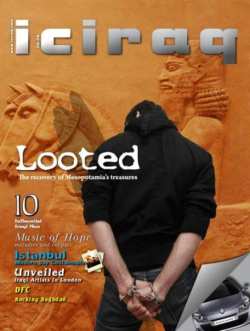 What is Christian Speculative Fiction? Rather than speculating ourselves, we decided to ask Christian publisher Jeff Gerke for his views. Jeff has served as an editor for Multnomah Publishers, Strang Communications, and NavPress. While at Strang, Jeff launched Realms, an imprint of Christian speculative fiction. In October 2008 Jeff launched Marcher Lord Press, an indie publishing company specialising in Christian speculative fiction. Under the pen name Jefferson Scott he has authored six Christian novels (Operation Firebrand: Deliverance is one of the best-known) and co-authored two non-fiction books. His new non-fiction title, The Art & Craft of Writing Christian Fiction, is available now.
What is Christian Speculative Fiction? Rather than speculating ourselves, we decided to ask Christian publisher Jeff Gerke for his views. Jeff has served as an editor for Multnomah Publishers, Strang Communications, and NavPress. While at Strang, Jeff launched Realms, an imprint of Christian speculative fiction. In October 2008 Jeff launched Marcher Lord Press, an indie publishing company specialising in Christian speculative fiction. Under the pen name Jefferson Scott he has authored six Christian novels (Operation Firebrand: Deliverance is one of the best-known) and co-authored two non-fiction books. His new non-fiction title, The Art & Craft of Writing Christian Fiction, is available now.
TCW: What exactly is Christian speculative fiction?
JG: Christian speculative fiction is a fancy way of saying “science fiction and fantasy written from a Christian worldview.” There are many popular genres in Christian fiction, just as there are in the wider publishing arena. But unlike in secular publishing, where fantasy and science fiction are extremely popular, Christian publishing has not always appreciated the kind of fiction I affectionately call the weird stuff.
Continue reading ‘Christian Speculative Fiction – a ‘lost’ genre?’
In her third and final post on Writing Historical Fiction, RS Downie tells us why using fact in fiction is like wearing underwear. Ruth is the author of Ruso and the Disappearing Dancing Girls (’Medicus’ in the USA) and Ruso and the Demented Doctor (’Terra Incognita’ in the USA), the first in a series of historical crime novels set in Roman Britain.
Research is Like Underwear…
In 1541, if you came from London, you considered Yorkshire to be a barbarian land. Once you turned off the Great North Road, the journey to York was a ‘wretched track’. The woods contained boar and wildcat and the locals still shared thatched hovels with their cattle.
Continue reading ‘Writing historical fiction 3 – using fact in fiction’
 I am very proud to announce the launch of Iraq’s first English language lifestyle and culture magazine, IC Iraq. When my friend and fellow creative writing MA graduate Zainab Radhi told me she had just been hired to edit this landmark publication, I was thrilled for her. So when she asked me to be her sub-editor, I jumped at the chance – particularly because I could do it remotely from right here in the UK.
I am very proud to announce the launch of Iraq’s first English language lifestyle and culture magazine, IC Iraq. When my friend and fellow creative writing MA graduate Zainab Radhi told me she had just been hired to edit this landmark publication, I was thrilled for her. So when she asked me to be her sub-editor, I jumped at the chance – particularly because I could do it remotely from right here in the UK.
Continue reading ‘IC Iraq – new lifestyle magazine launches in Baghdad’
Students from my ever-popular non-fiction writing course in Newcastle have asked for a follow-up course. The result is Write To Sell, hosted by the Centre for Lifelong Learning. The course starts on Thursday 21 May at 10am. Places are filling up fast, so to secure your place book through CLL asap. Details are here
The course is suitable for anyone who has completed the first level course or who has had some non-fiction published already. If you have done neither, then why not check out my free non-fiction course here on The Crafty Writer.
Today RS Downie continues with her second post on Writing Historical Fiction (if you missed the first on creating your historical world, why not check it out first). Ruth is the author of Ruso and the Disappearing Dancing Girls (’Medicus’ in the USA) and Ruso and the Demented Doctor (’Terra Incognita’ in the USA), the first in a series of historical crime novels set in Roman Britain.
You can’t please all of the people…
Here’s a confession: the earliest edition of my first book contained a wrong Latin ending. I only found this out when it was firmly and very publicly corrected by a reviewer in a national newspaper. It was a small thing – just two letters – but as he said, it cast doubt on the rest of the research. He said nice things as well, and later chose the book as one of his top thrillers for Christmas, but at the time I barely noticed the positive points. I was mortified. I felt I’d let everyone down. I lay awake fantasising about recalling all the copies so I could set fire to them and then fling myself on the pyre.
Continue reading ‘Writing historical fiction 2 – doing the research’
 What is Christian Speculative Fiction? Rather than speculating ourselves, we decided to ask Christian publisher Jeff Gerke for his views. Jeff has served as an editor for Multnomah Publishers, Strang Communications, and NavPress. While at Strang, Jeff launched Realms, an imprint of Christian speculative fiction. In October 2008 Jeff launched Marcher Lord Press, an indie publishing company specialising in Christian speculative fiction. Under the pen name Jefferson Scott he has authored six Christian novels (Operation Firebrand: Deliverance is one of the best-known) and co-authored two non-fiction books. His new non-fiction title, The Art & Craft of Writing Christian Fiction, is available now.
What is Christian Speculative Fiction? Rather than speculating ourselves, we decided to ask Christian publisher Jeff Gerke for his views. Jeff has served as an editor for Multnomah Publishers, Strang Communications, and NavPress. While at Strang, Jeff launched Realms, an imprint of Christian speculative fiction. In October 2008 Jeff launched Marcher Lord Press, an indie publishing company specialising in Christian speculative fiction. Under the pen name Jefferson Scott he has authored six Christian novels (Operation Firebrand: Deliverance is one of the best-known) and co-authored two non-fiction books. His new non-fiction title, The Art & Craft of Writing Christian Fiction, is available now. I am very proud to announce the launch of Iraq’s first English language lifestyle and culture magazine,
I am very proud to announce the launch of Iraq’s first English language lifestyle and culture magazine, 